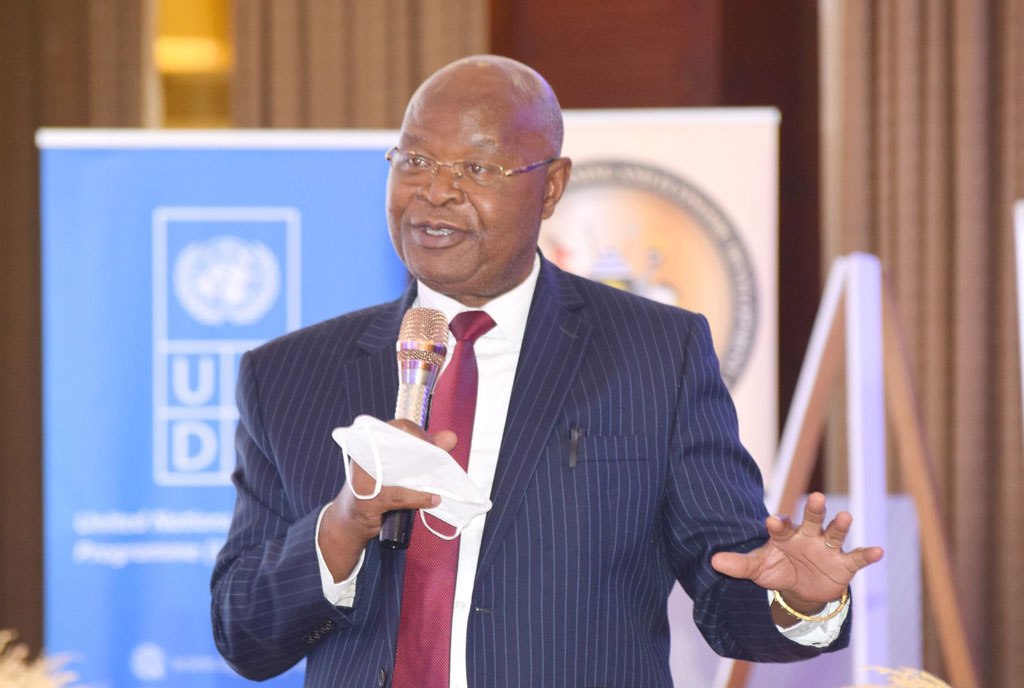When donors get it wrong in Africa

GOOD MOVE: Whereas some aid projects like road construction benefit many people, others are not beneficial. REUTERS PHOTO
Every year billions of well-intentioned dollars are doled out to Africa but sometimes there is little to show for it. Researcher SAMANTHA SPOONER looks at the pitfalls of charity on the continent:-
In 2007, the International Finance Corporation discovered that only half of its aid-funded projects in Africa succeeded. When we consider that in 2009 the net bilateral Overseas Development Aid (ODA) to Africa was $27 billion and that pledges stood at $130 billion in 2010, you realise just how much money can be wasted.
Last week the British Government told the UN, World Bank and other international bodies who are recipients of its aid that they must have a proven impact on the ground or face cuts.
The critics of the aid industry have focused heavily on aid accountability on both the part of the donors and the beneficiaries, and on concerns over whether aid breeds poverty and is therefore not conducive to long-term sustainable growth.
While these analyses are both valid and widely recognised there is another insight into the potential inefficiency of the aid business which sheds light on an anthropological, more localised critique: Sometimes aid attempts to solve problems which are either created or misunderstood.
Improper diction
There has been a great push on the part of donors to have buzz-words such as ‘participatory’, ‘empowerment’ or ‘indigenous knowledge’ included in funding proposals. The reason for this is the assumption that involving people in projects ensures effective results because it only seems right that those affected by aid should be involved in the decision-making process.
The problem is, doing community or local level research is never straight forward and the process can become affected by many factors which inhibit the ability to establish an objective truth.
The terms ‘empowerment’ and ‘participation’, for one, can be alluringly deceptive. There are situations where these words are included in proposals but actually do not challenge the top-down status quo established by the aid agency.
Also, at times ‘empowerment’ and ‘participation’ can even be used to conceal a means to achieve cost-effectiveness, such as using the local communities as free labourers. The result of this is aid initiatives which continue to be dictated by people who may not have a full understanding of the situation at hand.
An example of this is the Lake Turkana fish processing plant in Kenya which was designed to provide jobs to the Turkana people through fishing and fish processing. The project cost the Norwegian government $22 million and is now just a white elephant. One of the reasons for the failure is that the Turkana are nomadic pastoralists without a history of fishing.
‘Empowerment’ and ‘participation’ in situations such as this have simply become a selective process in which the ability to participate is determined by the willingness to succumb to external interests. When true participation is not employed, a simple assumption on the part of those initiating the project can bring about its demise. Entire agricultural programmes in Africa are known to have been affected by Western sexual role stereotypes. This is because the typical farmer in Africa is a woman but the training and projects were aimed at the men.
Aid can also be misinformed by research when the people engaged in the ‘participatory’ processes are attempting to manipulate the system. This can occur when those providing the aid view the community as a homogenous and obliging group in need of help.
When this happens, local power relations could be overlooked, creating a problem for international development since inaccurate information can lead to a wrong diagnosis and create projects that benefit specific interests, usually the most influential people within a society, meaning there is no real participation or empowerment.
Influence peddling
Manipulations of projects could also occur in situations where local notables are participating in programmes as a means to empower themselves, by obtaining resources or a voice in projects.
A clear example of this, on a national level, is the way in which the Kenyan government ‘mismanaged’ the funds intended for Kenya’s Free Primary Education Program. Both the British and the American governments suspended funding to the programme so that they could find alternative ways of channelling the funding to the schools without having to deal with the corrupt Ministry of Education.
Even when manipulations are not an issue, a factor which can be underestimated, and lead to the misunderstanding of research, is the concept of being ‘lost in translation’.
Assumptions
When participatory research is being conducted at the local level, in attempts to extract ‘indigenous knowledge,’ there is the assumption that the transfer of knowledge is easily or readily accessible through translation.
Even using the words ‘indigenous knowledge’ or ‘local knowledge’ immediately creates assumptions and sees knowledge as something bounded and static... ready for extraction, as opposed to something fluid and adaptable.
What can be overlooked is that, elements of ‘local knowledge’ may be something that is transferred simply through practical experience and sometimes communities may not want to share their experiences when the motives of an outsider are not clear.
These factors, coupled with the notion that eventually whatever knowledge being exchanged will ultimately be reduced to the language of the aid agency, can become problematic.
Consider Malawi. It has six main spoken languages and within each language group there are different and culturally appropriate ways of conveying HIV prevention messages.
Essentially what all these factors tell us is that small perceptions and assumptions which are made, and very hard not to make, can determine the outcome of an aid project at the local level.
Examples abound of mushrooming, well-intentioned, ‘sponsor a’ or ‘donate a’ something campaigns. These at times can be quite crude and show the large discrepancy between understanding what happens at the local level and the needs of individuals. Clitoraid and its slogan: Restoring a sense of Dignity and Pleasure, for instance. Donations made to this charity will go towards sponsoring any African woman who wants to have her clitoris rebuilt.
Conservatism
Even when you try not to be skeptical about the fact that the charity is run by the Raelian movement, a sect which believes humans were created by extra-terrestrial beings, it is hard to ignore the notion that they may have overlooked how conservative and traditional the communities that practise female genital mutilation are.
If the women are believed to be empowered enough as to contact the charity so that someone can sponsor the restoration of their organs, then it begs the question as to why they are not empowered enough to have not allowed the circumcision occur.
Whilst the good intentions are there, the reality of the situation is a different story.
There are also those aid agencies and charities which make assumptions and create problems that many Africans would not say are there, or at least, not a priority in their lives. ‘Knickers for Africa’ is an example of this. Members of the public are asked to donate money, underwear or bras so that the charity can transport them to places in Africa that “need” them most.
Whilst it is admirable that people are trying to help, it is hard to believe that if one went and asked people living in situations of hardship what they needed most they would say underwear. Furthermore, although the ‘Knickers 4 Africa’ charity asks for new underwear, there are other ‘Knickers for Africa’ campaigns which are falling into a condescending pattern of labelling individuals as the ‘grateful poor’.
Tricky business
When it is not being criticised on the international level for the potential harm it has caused or the conditionalities it may attach to further foreign interests, it is apparent that even on the ‘local’ level there is so much that can go wrong.
This is certainly not to say that all aid projects are ineffective but that issues can easily arise because aid is being largely controlled by outsiders. Participation, and the act of getting ‘good’ participation, should be an end in itself.
The programmes would be served better if directed and controlled by those affected by them as opposed to the beneficiaries simply fitting in with a model directed by people who have lived very different lives.
If this is a situation that cannot happen, then perhaps those who are eager to ‘help’ should be constantly reminded to suspend their own values and assumptions in order to fully understand others and ensure that what they are doing will be done in the most effective way.
Africa Insight is an initiative of the Nation Media Group’s Africa Media Network Project.



